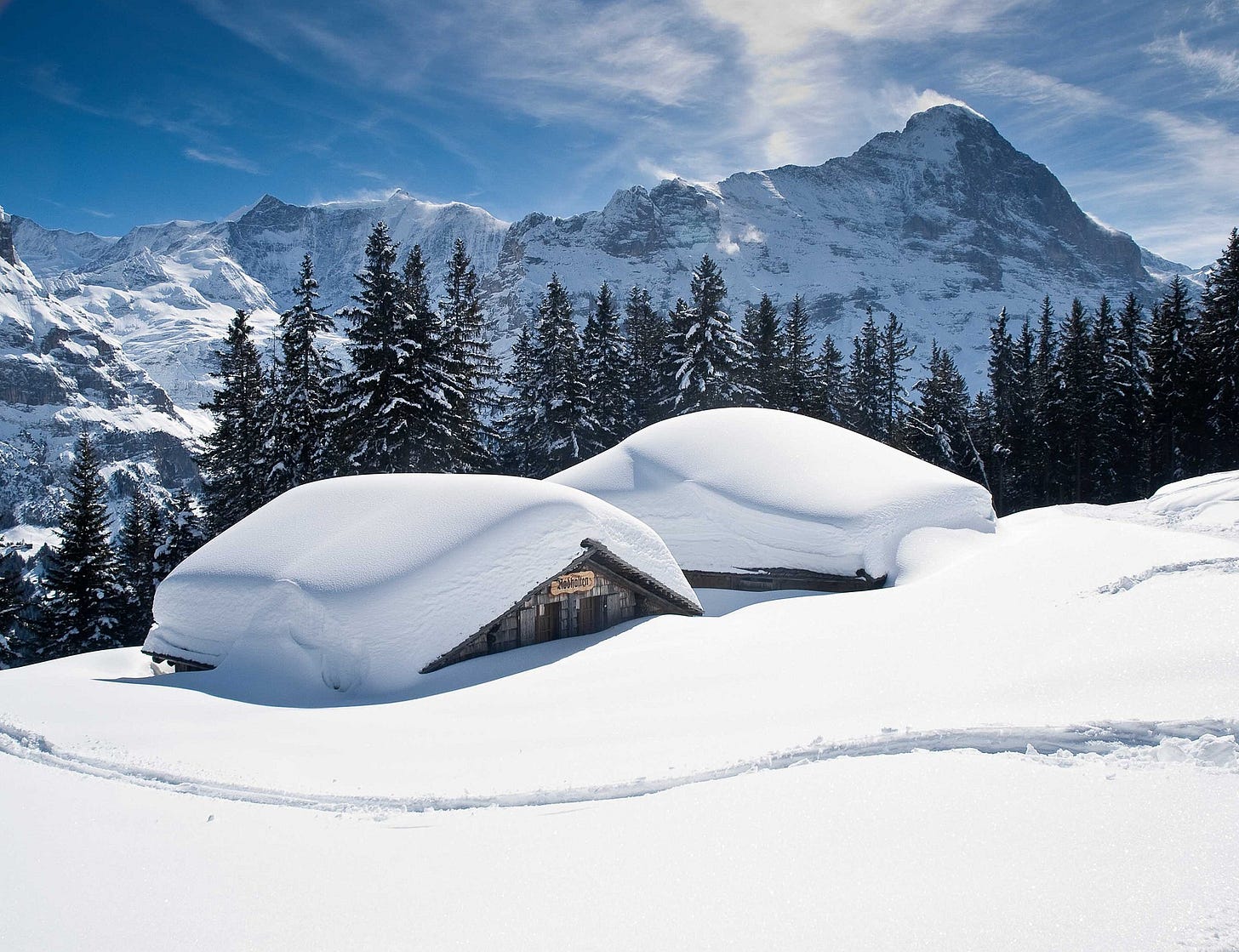It’s always the snow we miss. Even before winters became measurably warmer, and the ice thinned and melted, adults were remembering their far-off childhoods as uniquely blanketed in snow.
Où sont les neiges d’antan?—Where are the snows of yesteryear?—is a line from François Villon, the medieval French poet, that has become shorthand for all nostalgic longing. Snow and nostalgia are practically one.
For those in consumerist and majority-Christian countries, another question about winters gone by is implied: Where are the Christmases d’antan?
Every year a consensus reasserts itself, from the pulpit and around the dinner table: Christmases of an imprecise past were much, much better than this one. The true meaning of Christmas has been lost—left back there, back with the deep, pure snow drifts of yore; back before people were sundered by greed and politics; back when it was undeniably cold, before Big Oil and global warming.
If Jews on Passover eat Maror to remember the bitterness of being enslaved in Egypt, Christians on Christmas eat frosted cookies to remind themselves how much better the cookies were in 2012, or 1981, or in the other house, or with the other family, or before this or that in-law showed up. Aching nostalgia for true meaning, and terrible annual disappointment in discovering that that meaning is always out of reach, are not incidental to Christmas. They’re the whole roast beast.
Keep reading with a 7-day free trial
Subscribe to Magic + Loss to keep reading this post and get 7 days of free access to the full post archives.





